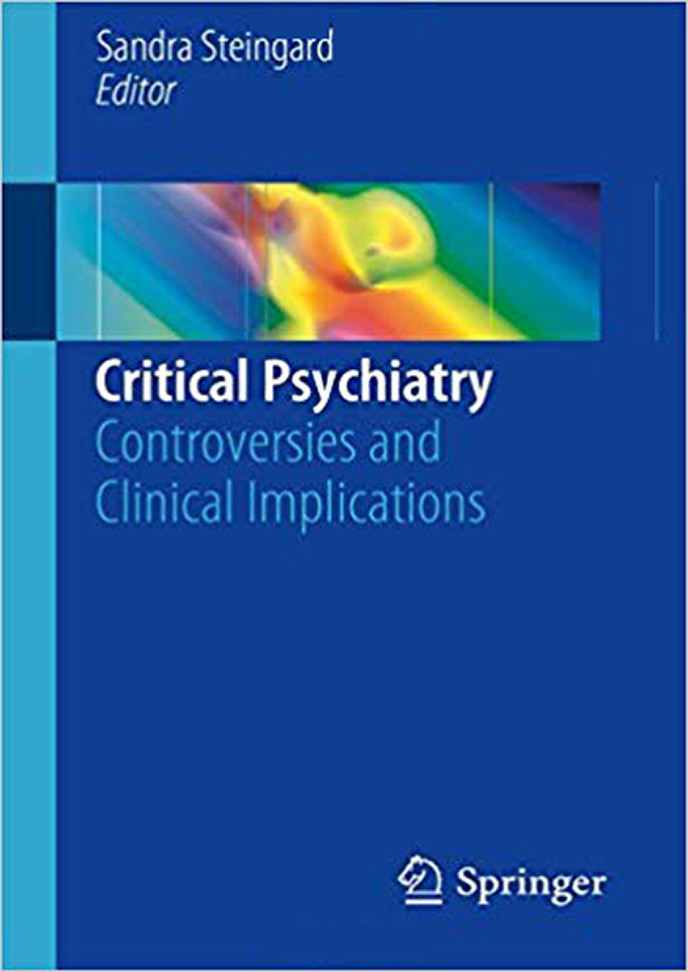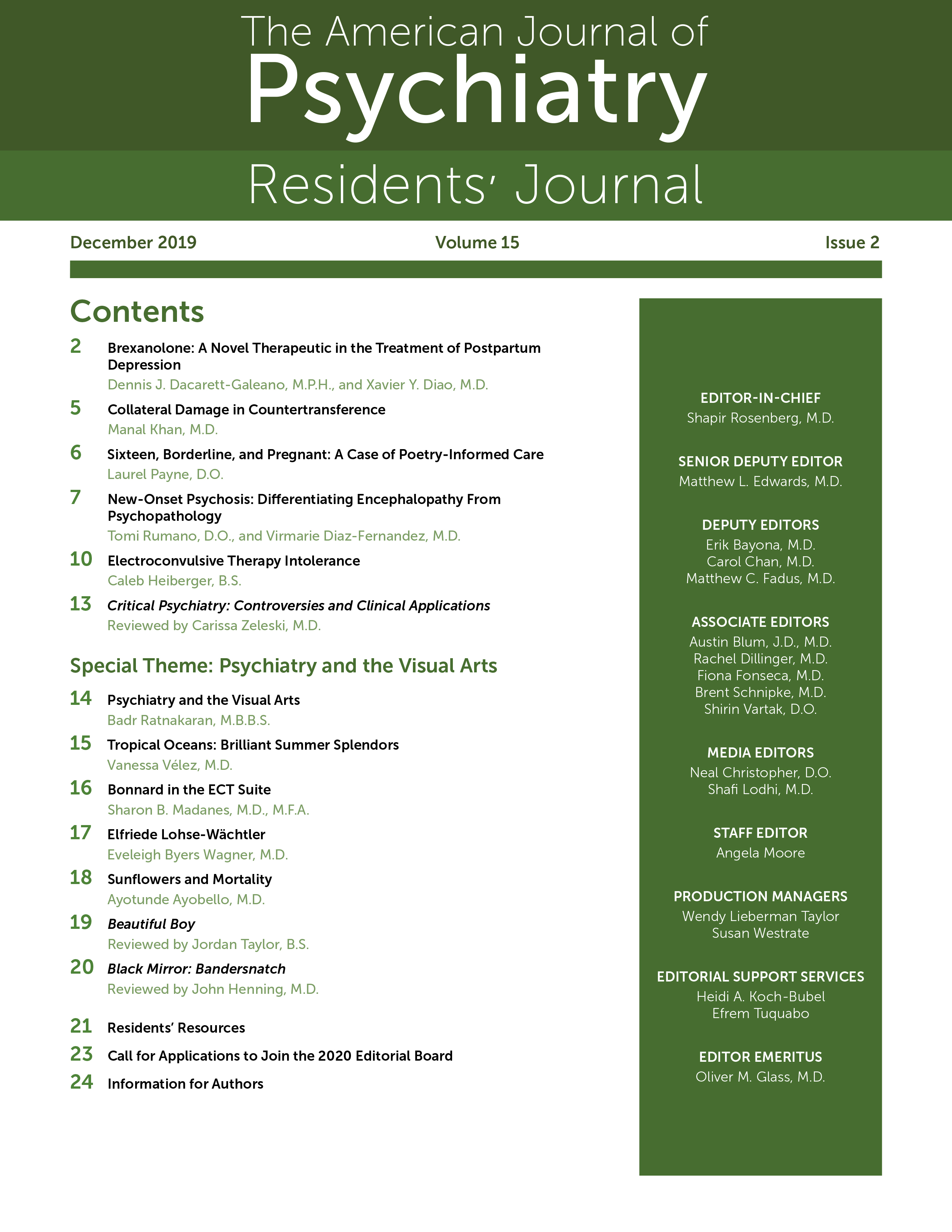Critical Psychiatry: Controversies and Clinical Applications is a collection of essays that suggests a plan of reform for clinical psychiatric practice. The collection, edited by Dr. Sandra Steingard, Chief Medical Officer of the Howard Center in Burlington, Vermont, gives a platform to psychiatrists, psychologists, clinical researchers, and patients to express points of view critical of mainstream psychiatry.
The book begins with a short chapter that elaborates on critical psychiatry and defines it as "a field that takes exception to some or all of the current dominant premises and paradigms" in standard psychiatric practice. The subsequent chapters build on each other to form a critique, beginning with questioning the validity of the DSM diagnostic system and the search for biological causes of mental illness. Following from this is a dismantling of the disease-centered approach to treatment in favor of a drug-centered one. Chapters on patient coercion, deprescribing, and the antipsychiatry movement round out the collection. The chapters are well-cited and well-organized, and the collection is concise, around 200 pages.
Critical Psychiatry succeeds in making a case for change and suggesting pragmatic reforms. For those interested, Dr. Steingard has outlined 11 principles for providers to follow if they hold critical views. These principles vary in their approach. Some simply encourage acknowledgment of power and bias, whereas others go so far as to suggest changes to prescribing. Their usefulness is relative to the provider’s comfort with nontraditional practice, because some principles can push the provider outside the standard of care. Regardless, the principles do an excellent job of condensing the book’s central arguments into a set of next steps. For those who are not interested in implementing major practice changes, the collection still serves a purpose, providing a road map to the conceptual foundations of the critical argument and traction to anyone who wishes to reflect on the current practice model.
The collection does not stand as an impartial dialectic; the critical point of view is favored. To be fair, the stated intent of the book is not to change anyone’s mind but rather to "explore the implications of various critiques." However, readers new to critical psychiatry and looking to establish their position may observe that although the authors generously cite resources to support their claims, few counterpoints are addressed with similar rigor. In addition, the authors of the essays come from a variety of backgrounds. The result is writing that ranges from academic to polemic in tone and from conservative to radical in approach. Much page space is dedicated to ongoing social oppression of marginalized groups through psychiatry, institutionalized corruption in the creation of psychopharmaceuticals, and victimization of the neurologically atypical by psychiatric treatment. These viewpoints are tempered with thoughtful analysis, and Dr. Steingard incorporates them smartly in her final principles. However, on the initial read, unsuspecting readers may be distracted by this seemingly unactionable and unchecked criticism. The consequence of this approach is that while readers already critical of mainstream practices will enjoy a full spectrum of critical perspectives, readers who are looking to establish a position on these issues may find themselves maintaining a skeptical distance.
Like many psychiatrists, I have my own concerns about the current practice model, especially in terms of the diagnostic limitations of the DSM and the difficult balance between beneficence and autonomy for my patients. Critical Psychiatry provides a nuanced reference for the critical viewpoint, and this has been helpful when working through ethical and philosophical dilemmas in my training. For this reason and others, I recommend this book. Although it stops short of providing an unbiased analysis of controversial issues, as an exploration of critical concepts, it is quite illuminating. There is likely something of interest for anyone who wishes to know more about this movement in the field.

